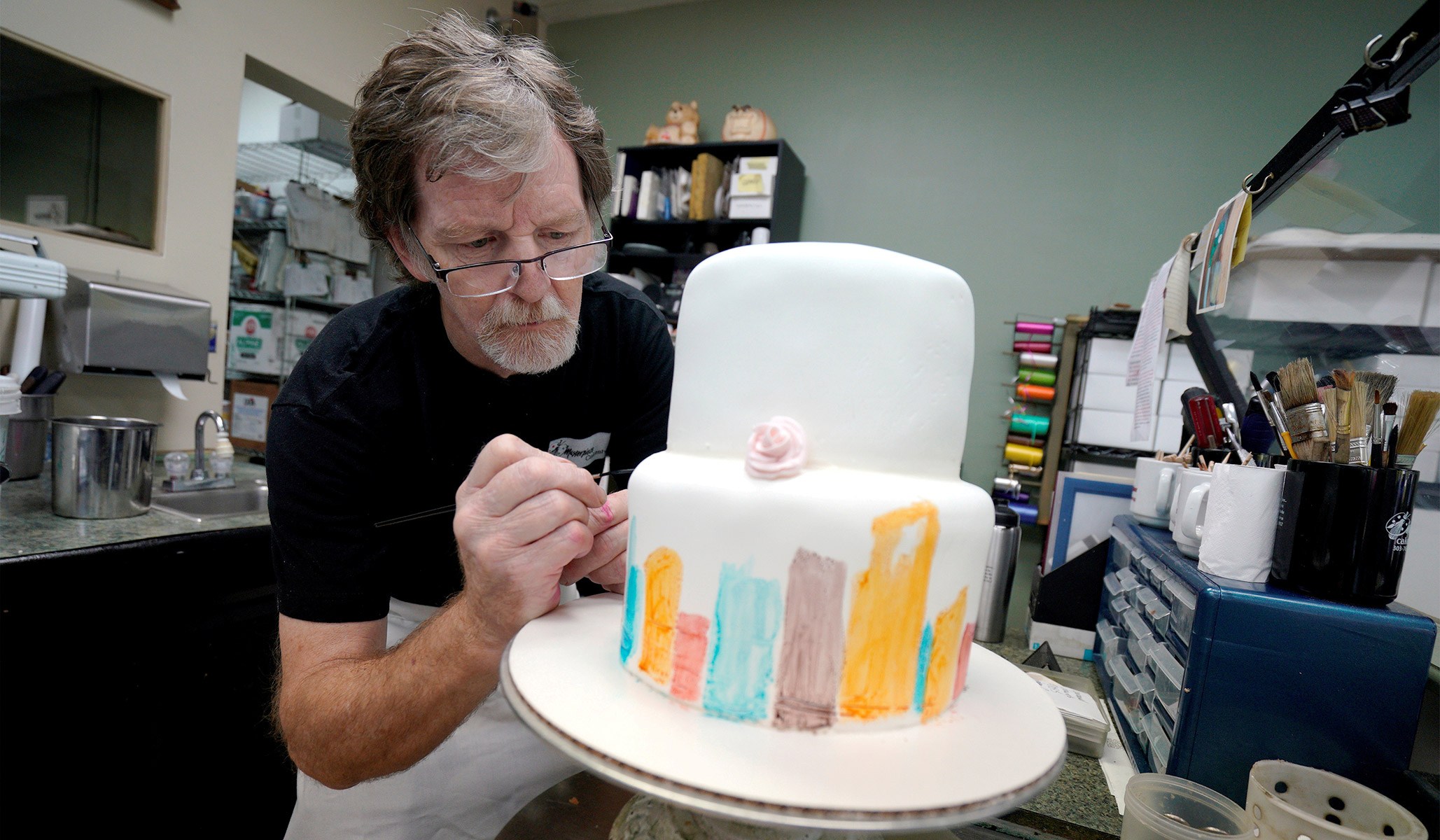By: Jeremy Dys – dailywire.com – March 8, 2019
Jack Phillips’ long ordeal appears to be over. After years of litigation and unnecessary protests, including a trip to the U.S. Supreme Court, Jack can return to being a cake artist without being forced to choose between his faith and his livelihood.
The precedent Jack set in Masterpiece Cakeshop v. Colorado Civil Rights Commission is valuable, both to him and to others. Writing for the Court’s majority, Justice Anthony Kennedy explained, “It hardly requires restating that government has no role in deciding or even suggesting whether the religious ground for Phillips’ conscience-based objection is legitimate or illegitimate.”
Yet it did require restating and the State of Colorado did suggest — even after Masterpiece — that Jack’s “conscience-based objection” was illegitimate. Which makes Justice Kennedy’s concluding words in Masterpiece all the more important:
The outcome of cases like this in other circumstances must await further elaboration in the courts, all in the context of recognizing that these disputes must be resolved with tolerance, without undue disrespect to sincere religious beliefs, and without subjecting gay persons to indignities when they seek goods and services in an open market.
In other words, there is more to be considered. And, the “cases like this” that Justice Kennedy foretold may be closer than you realize.
The State of Oregon shut down Aaron and Melissa Klein’s “Sweetcakes by Melissa” several years ago. The state penalized them $135,000 for the simple act of declining to create a custom wedding cake for a same-sex wedding ceremony (before same-sex marriage was even recognized in Oregon). Ironically, the customers were bringing them repeat business; Aaron and Melissa had made a custom wedding cake for the marriage of one of their mothers.
That did not matter to Oregon’s Bureau of Labor and Industries (BOLI). In addition to the huge financial penalty, the state agency imposed a gag order against Aaron and Melissa, forcing them to appeal to the Oregon Court of Appeals for relief from that just so they could talk about their religious beliefs in public again.
BOLI rests all of its actions on a law that theoretically applies generally to everyone and, on its face, treats religious exercise neutrally. It maintains that places of public accommodation — like a custom cake shop — may not deny “full and equal” service based upon someone’s sexual orientation.
Based on this, the Oregon Court of Appeals concluded in its opinion, BOLI did not “impermissibly burden the Kleins’ right to the free exercise of their religion.” Why? Because the law they stand accused of violating is a “a neutral law of general applicability, and the Kleins have made no showing that the state targeted them for enforcement because of their religious beliefs.”
That language is grounded in the 1990 decision of the U.S. Supreme Court called Employment Division v. Smith. The product of the late Justice Antonin Scalia, the majority opinion in Employment Division has been roundly criticized through the years. Most recently, Justice Samuel Alito, writing also for Justices Thomas, Gorsuch, and Kavanaugh in a statement denying review of a case involving a coach fired for taking a knee in silent prayer after a game, said that in Employment Division, “the Court drastically cut back on the protection provided by the Free Exercise Clause.”
The danger of Employment Division is that it allows laws that do burden one of the key provisions of the First Amendment — namely, the free exercise of religion — to escape meaningful judicial review.
In other words, if the commissioners in Colorado had simply been nice and not vocalized their hostility, they could have lawfully shut down Jack Phillips regardless of his “conscience-based objections.” He would have no viable recourse in the courts. Similarly, though BOLI’s case against Aaron and Melissa may be rife with hostility toward their religion — most obviously in the outrageously lopsided $135,000 penalty imposed against them — the law that is used to curtail their free exercise of religion happens to be neutral toward religion and applied generally to everyone.
In the next few weeks, the Justices of the Supreme Court of the United States will decide whether to hear Aaron and Melissa’s case. Not only does their case provide the chance to further elaborate the protection due for such conscience-bound Americans, it pointedly asks the court to re-evaluate Employment Division.
Masterpiece left American business owners wondering whether the government can prescribe what they believe and force them to confess accordingly. It’s perfectly reasonable for people of faith to operate their business according to their beliefs, without fear of the government compelling them to create a message contrary to their religious convictions.
More than that, the Constitution prohibits government officials — high or petty — from compelling small business owners to create a message contrary to their religious beliefs. Employment Division lets government officials do just that.
To see this article, click read more.
Source: DYS: When ‘Neutrality’ Toward Religion Fosters Religious Discrimination | Daily Wire
 Listen Online
Listen Online Watch Online
Watch Online Find a Station in Your Area
Find a Station in Your Area









 Listen Now
Listen Now Watch Online
Watch Online
